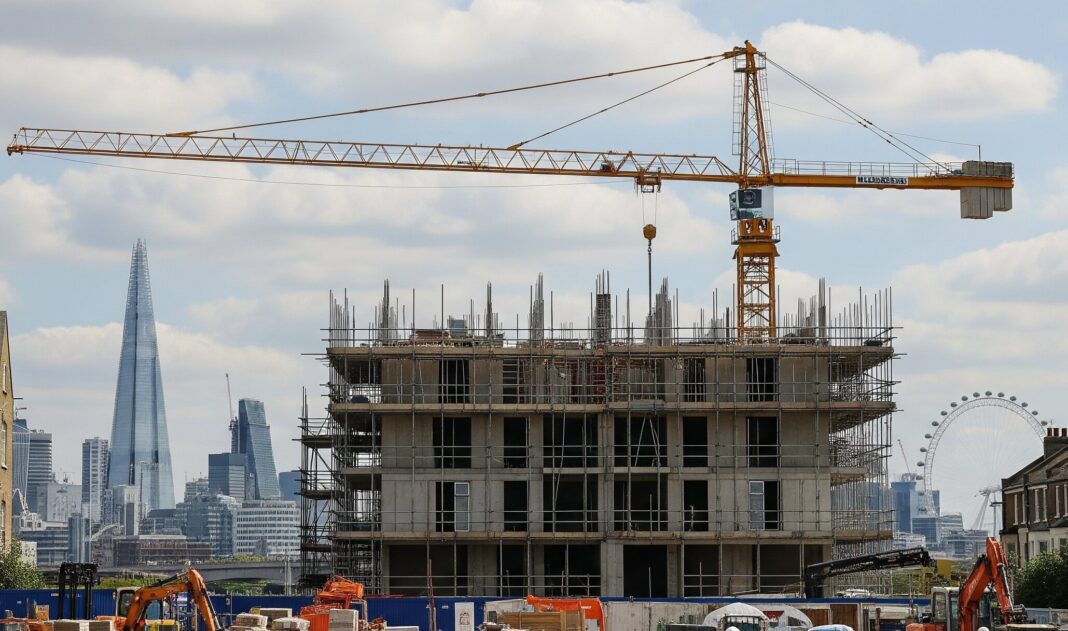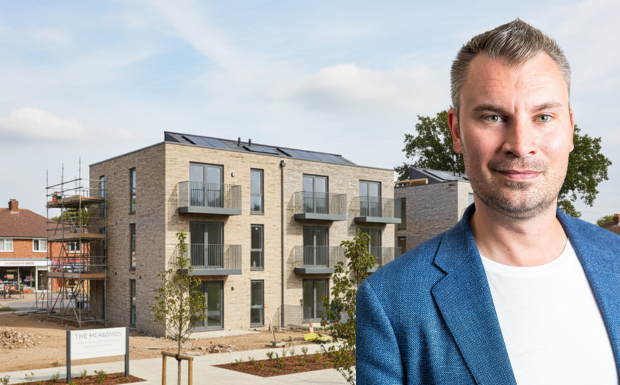London’s new housing supply is collapsing, with construction of private homes falling to the lowest level in more than a decade according to the latest data from development analysts Molior.
Between January and September 2025, just 3,248 private homes began construction across the capital – putting London on track for fewer than 5,000 new starts this year.
That compares with an average of 60,000–65,000 homes under construction at any given time between 2015 and 2020.
Today, only 40,000 private homes are being built across Greater London – and more than one in six of those, or 5,300 units, are on sites where work has stopped entirely.
SLUMPING SALES
Many of these schemes are padlocked, either because the main contractor has gone bust or because the developer has halted work amid near-standstill sales.
Molior warns that with a surge of completions due in 2026, the pipeline will fall sharply thereafter.
By January 2027, the firm forecasts that as few as 15,000–20,000 new homes will be actively under construction unless the Government intervenes to cut development costs and reform stamp duty.
Sales across the capital have slumped to crisis levels. Only 5,933 new homes were sold during the first nine months of 2025 – a fraction of the 22,000 per quarter required to meet housing targets.
At price points below £600 per square foot, where most Londoners buy, sales to individual owner-occupiers are described as “virtually non-existent”.
“Without buyers, construction cannot begin.”
“The correlation between sales and construction is absolute,” the report says. “Early sales prove viability, unlock finance, and enable starts. Without buyers, construction cannot begin.”
The decline of off-plan investment and the near-collapse of build-to-rent funding have deepened the downturn.
After a strong decade of multifamily completions, the sector “has effectively ended in London”, Molior says.
UNDERSUPPLIED RENTAL MARKET
New supply is forecast to dry up after 2027, leaving the capital’s rental market severely undersupplied and rents likely to rise sharply.
Meanwhile, 281,000 homes with planning permission remain unbuilt. More than half of these are in areas where development is unviable below £650 per square foot, even with free land and no planning obligations. Developers are also deterred by building safety regulations and planning delays.
Molior concludes that, without urgent fiscal reform, London’s development market faces “a prolonged period of inactivity”, leaving government housing targets “impossible to achieve.”
HIGH RISK HOUSEBUILDING

Andrew Teacher, Co-founder of Lauder Teacher and executive committee member at ULI, says: “Politicians have talked for years about delivering 300,000 homes a year without being honest about the fact that the vast majority of these homes are not built by the state but by private companies funded by institutions or public markets.
“This means that unless they can make a profit, they aren’t going to take the risks involved in development.”
And he adds: “Whether it’s building a loft, a railway or a nuclear power station, construction of any kind carries risk. A growing opposition to companies making profit has largely driven investors away from the market over the last decade.
“Declining sales rates, higher taxes on development and, above all, a knee-jerk regulatory response around safety following Grenfell have all combined to put the brakes on development in recent years.
WAY FORWARD
Teacher says: “The most sensible route forward now is to completely separate the delivery of affordable housing from new development – decoupling it would enable us to create a tax system around development that actually works with the market.
“Without housing, we are simply going to hold back growth in key cities such as London, Cambridge, Oxford, Leeds, Manchester, Edinburgh and Glasgow.”
“Labour should use its massive majority to overhaul the whole system.”
And he adds: “The need is not simply to make housing profitable but to make our wider economy function better. Labour should use the massive majority it has to properly overhaul the whole system, not tinker around the edges.
“It has a mandate to do it, it has the political power to do it, and while there will always be some nimby councils that don’t want development, the vast majority of Britain wants change. Ministers should be brave in moving forward.”









